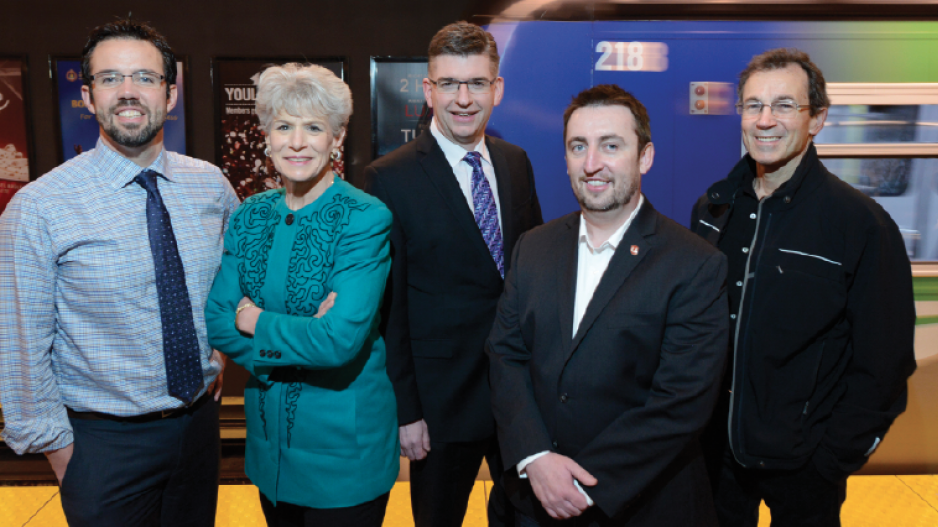The large coalition fighting for a yes vote in Metro Vancouver’s upcoming transit referendum is organized and ready to campaign.
The Better Transit and Transporation Coalition (BTTC) launched their website, www.bettertransit.info on January 29 and is rolling out social media campaigns through Facebook and Twitter as well, campaign leader Iain Black told Business in Vancouver.
“The data is very clear that when people understand the list of benefits of the mayors’ plan, the propensity to look on this favourably goes up dramatically,” said Black, the president and CEO of the Vancouver Board of Trade and one of the founding members of the coalition.
“The role and the messaging of our campaign will be very consistent. It is first and foremost to inform.”
Metro Vancouver residents will vote in a mail-in plebiscite from March 16 to May 29 on whether to allow a 0.5 regional sales tax to partially fund a $7.5 billion transit improvement plan that includes better bus service, more rail lines for Vancouver and Surrey and a new Patullo Bridge.
The no side, led by the Canadian Taxpayers Federation (CTF), had a head start on the coalition with a slick, hard-hitting website launched January 15. That website paints TransLink as an agency with a history of wasting tax dollars and suggests municipalities could find money for transit through future tax revenue.
It also warned that the sales tax would cost each Metro Vancouver resident $258 a year, based on the yearly revenue the tax is expected to bring in $250 million divided by the number of households (just under one million) in Metro Vancouver.
Black said the BTTC, which has swelled from an initial seven organizations to 65, is focused on a positive message about the benefits that more transit can bring to residents, and the urgent need for transit improvements as the region’s population grows by one million people over the 30 years.
The BTTC has calculated the yearly cost of the sales tax at an average $125 per resident. Black said a team of economic advisors arrived at that number.
“The CTF has their own way of doing the math,” Black said.
“The CTF can do with the data what they see fit, but I think I’d be cautious putting that on an apples to apples comparison with professional economists who are following well-established and well-proven methodologies for proving such things.”
An Insights West poll released January 20 showed that support for the yes side had slipped over a one-month period, with poll respondents saying they were confused about what would happen if the referendum passed.
If residents vote yes to the extra sales tax, the provincial government would enact legislation to put the tax into place, Black said. He believes that the province and federal governments will be much more likely to fund their portions of the plan if Metro Vancouver municipalities can show they have their share of the money in place, citing previous examples like the Canada Line and Evergreen Line.
“Our [Vancouver Board of Trade] members understand that there’s a benefit that goes with this investment,” Black said.
Black said that while retailers will have to spend some money and time to upgrade their point of sales systems, he believes most small businesses understand that the benefits of better transit will outweigh the inconvenience.
“If they can get the region moving again because congestion has gone away, if they can make it easier for tourists to get to where they are, if they can deliver 10 deliveries a day instead of seven, they’re going to have more customers and be able to make more money by operating their businesses more effectively,” Black said.
This week, the provincial government said vehicle and liquor sales will not be exempt from the tax. Car sellers had been pushing for an exemption, fearing that customers would travel outside of the region to avoid paying the extra tax.
The BTTC will hold its first public event on February 5 at Simon Fraser University downtown campus.
@jenstden




